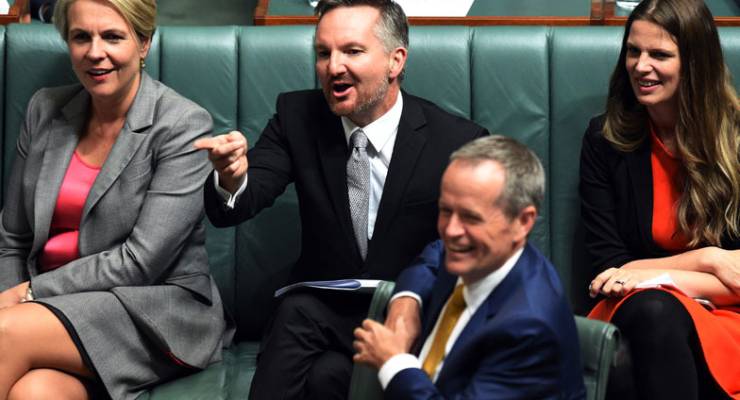
The Coalition has suddenly discovered the joys of bipartisanship, and it’s a wonder to behold. Last week, Tony Abbott lamented the “hyperpartisanship” of contemporary politics without admitting he was its principal source, but acknowledged he shouldn’t have blocked the Malaysian Solution in opposition.
Now, Coalition MPs are complaining about Labor’s refusal to pair with the government when MPs need to be absent from the forthcoming Parliament where the government will permanently teeter on the verge of minority status. And they’re grudgingly acknowledging that perhaps their own refusal to co-operate with the Gillard government might have been wrong.
“Two wrongs don’t make a right,” Barnaby Joyce said last night on the ABC about non-pairing.
Except, in fact, they do, at least in this context.
In 2011, Crikey suggested that the Coalition’s abandonment of economic responsibility in favour of populist oppositionism should be viewed as an example of the “iterated prisoner’s dilemma” — a game theory scenario in which you play multiple rounds of a game in which you can co-operate or not co-operate (called “defecting”) with a rival in each round to achieve individual or joint positive outcomes.
The classic scenario of the game is two criminals separately being interrogated by police, knowing that if they confess first they will get a lighter sentence than the other but also that if neither confesses, both go free. In that scenario, “defecting” — confessing — is the rational decision, even if it would be better if both adopted the “super-rational” position of not confessing.
[Census clusterfuck hits a government already lurching between bungles]
But being able to remember what happened in the previous round changes the game fundamentally, because what is rational in one round (defecting) might not be rational over multiple rounds. So, in the iterated version, you remember what your opponent did last time, and can respond accordingly. If the other player defected, you can continue to co-operate in the current round, or you can also defect.
Game theory says that continuing to co-operate in multiple rounds when your rival isn’t makes no sense — you’re simply rewarding them for their non-co-operation. Instead, you should adopt a “tit for tat” strategy that punishes your rival for defecting, instead of rewarding them. That provides an incentive for them to return to co-operation. But how do you stop an endless cycle of tit-for-tat responses? You build in a small element of co-operation instead of 100% defection, thereby providing the basis for your rival to co-operate in response.
That outcome is not merely good for the non-defecting rival, it actual maximises the overall benefits from the game. Once the defecting rival returns to co-operation, both get benefits. In political language, if a party is continually rewarded for adopting a wrecking, opportunity strategy, it will never stop, but if it is given an incentive return to co-operation, it will do so, with overall benefits for both sides — in this case, returning to political and economic rationality will be better overall for the national interest than one side perpetually engaging in opportunism and populism.
So now that the Coalition is in pretty much exactly the position the Gillard government found itself in –i.e., where into the next iteration of the fame — should Labor co-operate or defect? It should defect — that is, punish the Coalition for its defection in the last round, in order to encourage the Coalition to not defect in the future. If it co-operates, it will simply be rewarding the Coalition for its defection — and next time the Coalition is in opposition, it will do it again.
There’s a short-term cost to the national interest. However, longer-term, Labor actually serves the national interest by punishing the Coalition — provided it flags that it is prepared to return to cooperation. Two wrongs can indeed make a right. It isn’t merely a case of revenge for Labor, or political karma for the Coalition. There’s a serious national interest issue here — and game theory says it’s served best by Labor being as obstructionist as possible.








Or they could “defect” by simply voting against poor policy
If there is a more discredited notion than Freudian psych is can only be game theory.
GIGO.
Genuine question: can you share a reference on that?
Here’s one such example, there’s lots more around.
http://crookedtimber.org/2005/10/13/whats-wrong-with-game-theory/
What this government has done with political appointments (remember Steve Brack’s job) will hopefully come back to bite them, hard.
Ah sod it! What goes around comes around . . . .
“So now that the Coalition is in pretty much exactly the position the Gillard government found itself in –i.e., where into the next iteration of the fame — should Labor co-operate or defect?”
“In political language, if a party is continually rewarded for adopting a wrecking, opportunity strategy, it will never stop.”
What does game theory have to say about writing that is so poorly edited that it’s actually difficult to parse the argument being made?